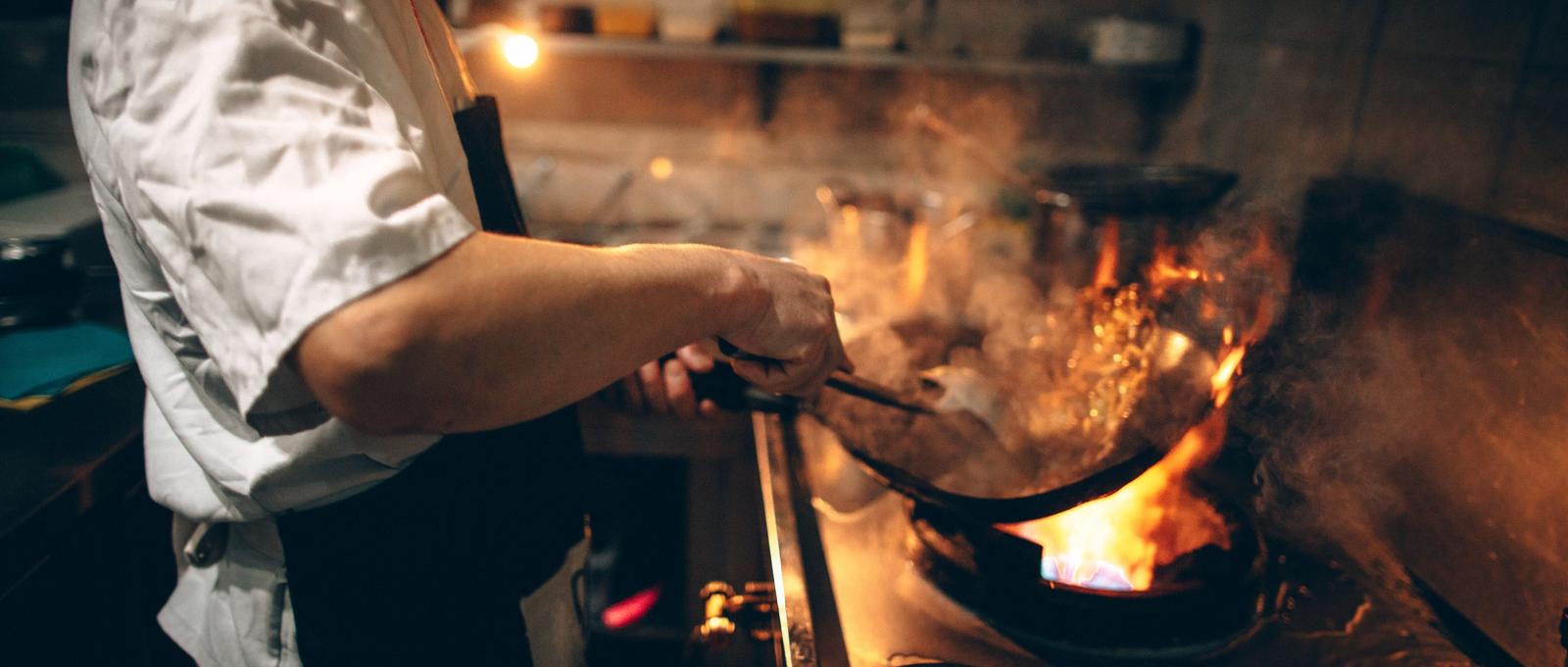
Working with food when you have an eating disorder
Peer reviewed by Dr Sarah Jarvis MBE, FRCGPAuthored by Patricia CarswellOriginally published 25 Sept 2017
Meets Patient’s editorial guidelines
- DownloadDownload
- Share
- Language
- Discussion
The food industry can be a stressful place to work at the best of times. Long hours, precarious contracts, low wages and, for those in customer-facing roles, unreasonable demands, can all make for a tough working environment. Add in an eating disorder and the picture gets more complicated still.
In this article:
The chances are if you work in the food industry you’ll be constantly exposed to the very thing that causes you difficulty. If you have, or are recovering from, an eating disorder this can make life even more stressful and could trigger your symptoms.
Continue reading below
A popular career choice
More people with eating disorders are drawn to this kind of career than you might expect. They often become obsessed with food, watching cookery shows, cooking for others (often without eating the results themselves) and thinking about food, so it’s common for them to gravitate towards careers involving food.
According to Dr Murali Sekar, a consultant psychiatrist at Priory’s Chelmsford Hospital in Essex who specialises in eating disorders, “Few studies have been done into this but from my experience I would say that a significant minority of individuals with eating disorders work in the food industry, whether it is working in a restaurant, supermarket, café or the catering services generally. The type of eating disorder - anorexia nervosa or binge eating - may have an impact on the nature of, and type of effect on, the chosen career.”
The challenges
Being surrounded by food may be challenging if you have an eating disorder; it can trigger disordered behaviours.
“The main challenges,” says Dr Sekar, “would depend upon the nature of the eating disorder and upon the individual. For example, a person with significant food-related anxiety may choose and use the repeated exposure to food as a way to get on top of their fears. For another person with anorexia nervosa, the fear is so intense that they cannot go anywhere near food aisles in supermarkets or restaurants.”
Continue reading below
Should you avoid the food industry altogether?
The short answer is not necessarily.
“I would not say, as a general rule, we should advise people to stay away from such a profession,” says Dr Sekar. “Getting repeated exposure to food or eating, under professional guidance in a carefully thought out way, is therapeutic. We take this approach in our treatment. Some patients, who could not overcome the fear, may need to stay away from working in this field at least until they have a better control of their symptoms."
"With the right support, such a person can be eased into a setting where food/eating is the central theme. I’d also want to highlight the difference between exposure for therapy reasons and exposure for professional reasons."
“My advice would be for the person to weigh up the daily challenges they would face with the importance of having a career in the food industry. If the latter outweighs the former, they should go for it. Whilst doing so, they need to make sure that they are keeping an eye on their eating disorder and seek objective feedback from the workplace, friends, family and professionals wherever relevant.”
What support is out there?
There’s no industry-specific support available, although many of the larger food manufacturers, such as Cadbury, Coca Cola and Danone, have healthy living programmes for employees that cover personal wellbeing.
If you’ve been seeing a GP or having psychiatric help or counselling, talk to them about the potential challenges and put a strategy in place so you can recognise any issues and address them before they become major problems.
The eating disorder charity, Beat, provides further support with a 24/7 Helpline service, and online support groups.
Continue reading below
Put your health before your career
Even if you love your job, if it’s causing you problems you must put your health first. Talk to your GP or medical team and if that doesn’t solve the problem, consider a different job.
Lisa Roukin is a full time chef and author of cookery book, My Relationship with Food. She found a career in cooking helped heal her eating disorder. Having been overweight as a child, she developed anorexia and bulimia in her teens and was admitted to an eating disorder clinic.
As she recovered, her doctor advised her to avoid working in the food industry so she spent six years working in fashion. Eventually she realised that it was only working with food that would make her happy.
“I felt like I wasn’t connected to the one thing that made me happy in a creative way,” she says. “I love the atmosphere about food and how it brings people together.”
By now Lisa was much healthier and felt ready to work with food, so she took the plunge and trained to be a chef. She hasn’t looked back. “Working with food has been healing for me. I feel so connected with it. If I’d stayed in the fashion industry I would have had a lonely relationship with food; it would be like someone saying I don’t think you should ride a bike after you’ve fallen off. Sometimes you need to get on and ride it.”
Lisa advises anyone in her situation to think carefully about why they want to work in the food industry. “Identify if your motivations come from a good place. If you’re using your job in a positive way to keep yourself on a healthy track and show people you can turn it around, it could work for you.”
Patient picks for Eating disorders

Mental health
Do shrinking fashion sizes promote anorexia?
Shop mannequins and dress sizes seem slimmer and smaller than ever before - but do they really skew our perception of 'normal' body shapes and fuel eating disorders? We take a look at the main issues surrounding the debate.
by Danny Chadburn

Mental health
How do stereotypes prevent Black people from seeking help for eating disorders?
Research conducted by eating disorder charity Beat found that 4 in 10 people incorrectly believe that eating disorders are much more common in white people. This stigma often results in Black people either not feeling able to reach out for help for their EDs, or not receiving full support when they do.
by Emily Jane Bashforth
Article history
The information on this page is peer reviewed by qualified clinicians.
25 Sept 2017 | Originally published
Authored by:
Patricia Carswell
Peer reviewed by
Dr Sarah Jarvis MBE, FRCGP

Ask, share, connect.
Browse discussions, ask questions, and share experiences across hundreds of health topics.

Feeling unwell?
Assess your symptoms online for free
Sign up to the Patient newsletter
Your weekly dose of clear, trustworthy health advice - written to help you feel informed, confident and in control.
By subscribing you accept our Privacy Policy. You can unsubscribe at any time. We never sell your data.